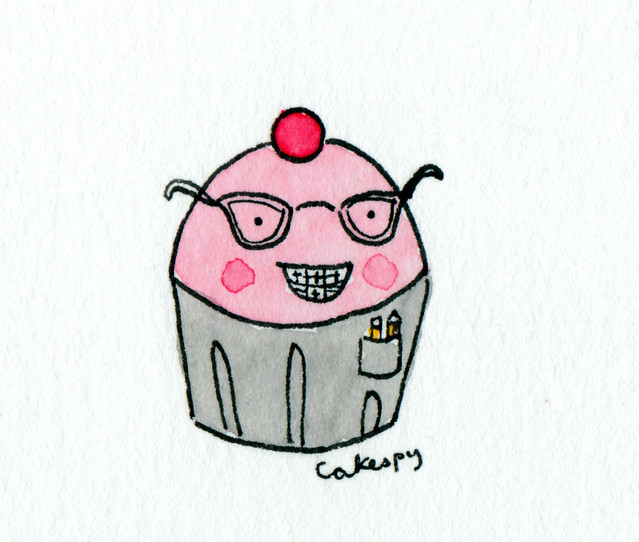While I primarily focus on sweets on this website, my recent writing about body acceptance, health, and well-being has been personally rewarding in that I feel that my words are really able to help people live fuller, more delicious lives. So when I was offered the opportunity to share information on eye health in this sponsored post, I felt it was appropriate, important, and worthwhile information to share. After all, we eat with our eyes first, and the world out there is big and wide and open and beautiful. We should all approach it with an open heart and clear, bright eyes! 
In a nutshell, my story is this: when I was 11 years old, I got my first pair of glasses. I have worn them ever since. I love my glasses--they are part of my personality and I have different pairs to match my mood, or at least my shoes. That having been said, I know it is of the utmost importance to care for my eyes. While my vision isn't naturally the best, I know that by keeping myself healthy, I can help prevent vision decline as I get older. As cute as glasses can be, I don't want to succumb to macular degeneration or age-related eye diseases.
Basically, I want to do everything I can to keep my eyes healthy.
Eye health is often overlooked, although vision is responsible for many health issues: 258 million people worldwide are visually impaired; 39 million are blind. A significant percentage of eye disease in the US is age-related macular degeneration. Overall, the medical costs associated with vision disease exceed $20 billion dollars per year in the US.
The thing is this: much of that cost and suffering is preventable. If we were to take proactive steps toward eye health, the costs and medical complications could be reduced dramatically.
So how do we take proactive steps? The first step, which is accessible to anyone, is proper nutrition.
Taking care of your eyes: nutrition everyone needs
There are certain essential nutrients which can help maintain eye health. Let's explore them:
Lutein and zeaxanthin
These are two nutrients which support eye health. Both lutein and zeaxanthin are carotenoids, occurring naturally in leafy greens such as kale and spinach, as well as other fruits and vegetables. They have two key functions: they absorb potentially harmful blue-violet wavelengths of light energy that come into the eye, and they also function as antioxidants.
Studies show that lutein and zeaxanthin can boost macular pigment optical density (MPOD) in people in early stages of age-related macular degeneration, enhancing overall retinal function.
DHA and EPA Omega-3s
These polyunsaturated fatty acids, which are found primarily in fatty fish like salmon, are important for overall health, but are particularly important for healthy eyes.
Some studies have shown a link between low levels of DHA and EPA and eye diseases such as diabetic retinopathy, AMD and retinopathy of prematurity. By increasing intake of DHA and EPA Omega-3s today, we can help maintain our eye health.
Vitamin E
This is no mere vitamin: it's a fat soluble superstar which has antioxidant and anti-inflammatory properties. It is naturally found in nuts, seeds, vegetable oils and greens.
However, neither adults nor children are getting the recommended amount of vitamin E from diet alone.
So how do we up our intake of these vital nutrients?
Even with the best of intentions, fitting all of these nutrients into our diet can be difficult. This is where vitamins and other essential nutrient supplements can play a vital role in closing the nutrient gaps in our diets.
For more information on essential nutrients for brain health, go to vitaminsinmotion.com.
DISCLAIMER:
This post includes my own personal opinions, and should not be taken as medical advice.
